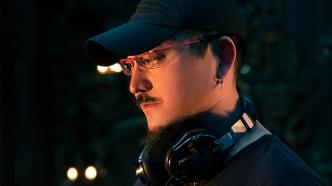
On June 6 this year, the solar term Ear Seed. According to the practice of China's first national myth epic film "Fengshen Trilogy", the official Weibo of the movie "Fengshen Part I" is accompanied by a picture of "Life is not panic, don't 'light', slowly 'plant' hope" Wen, as scheduled to meet with the public.
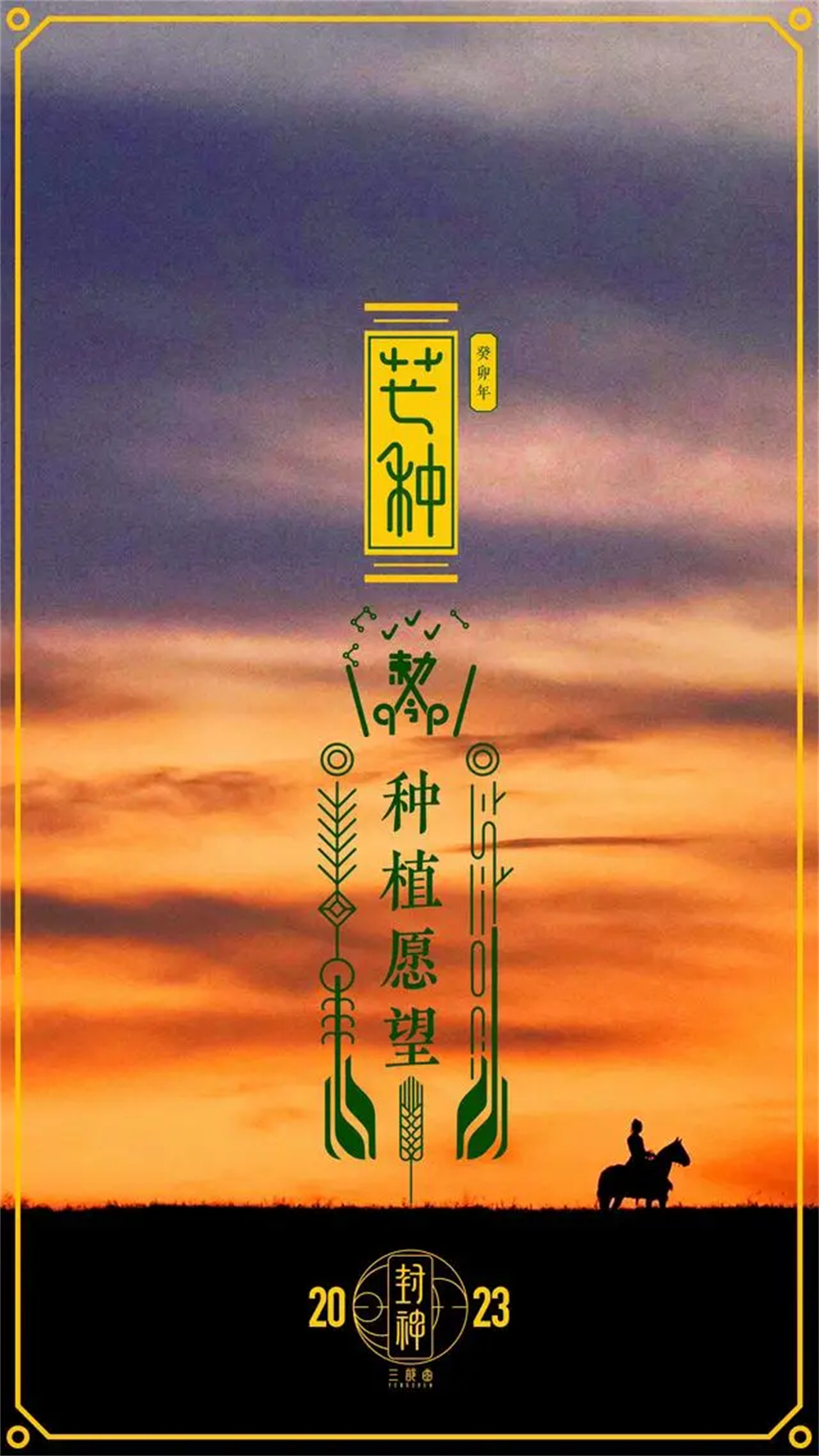
The official Weibo of "Fengshen Part I" released a poster of the "Mangzhong" solar term.
It is said to be "as promised", and it has gone through five cold, summer, autumn and winter. Since February 4, 2018, the film released its first solar term poster in Lichun, the first of the twenty-four solar terms. After that, every year in the twenty-four solar terms, the official Weibo of the film will release a solar term poster. Of course, this year's Mangzhong is different. "The First Part of Fengshen" officially announced the file on the same day: July 20, "Opening the List and Fengshen".
From its birth to its release, the movie "Fengshen Trilogy" can be described as "a gathering of ten years". The first planning meeting was held in 2014, and the project was approved. During this period, the script was polished for five years, and then the filming officially started in 2018. In the autumn of 2019, The Paper visited Qingdao Oriental Movie Metropolis, where the series was filmed. The news at that time was that the first part of the film would be released in the summer of 2020. However, due to repeated delays due to the impact of the epidemic, the release date had to be postponed repeatedly.
"This year is already the 9th year. In the past two years, I have also filmed "Under the Other Man" and started preparations for "Zheng He's Voyages to the West", but the advancement of "Fengshen Trilogy" has not stopped for a moment , it’s just that the time has been too long, and every interview, I have a feeling that I don’t know where to start. There are too many things to say, and every link and every department can say a lot.” Sitting in Changshengtian, Beijing In the reception room of the film industry's own company, Wu Ershan's opening remarks were surprisingly calm. As the creative producer, director, and screenwriter of "Fengshen Trilogy", he is undoubtedly the best narrator before and after the film.
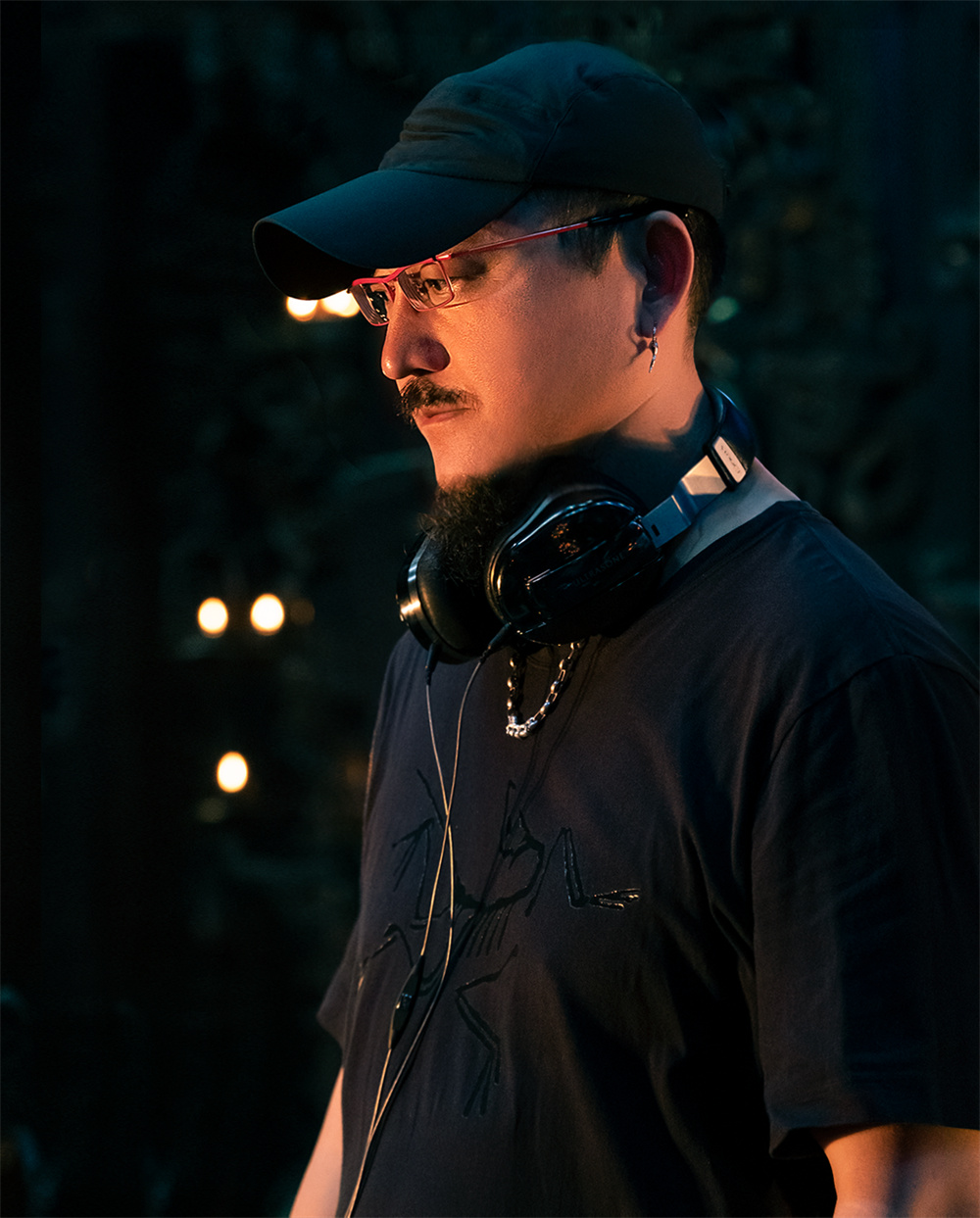
Director Wu Ershan
"Then let's talk about the diagram on the white blackboard behind him first?" The reporter pointed to the pattern on the white blackboard behind him.
"This is a sketch of the world view of the world of Fengshen: The ancient Chinese world view is that the sky is round and the place is round. As a central country, the ancestors believed that the center of the world is Chaoge. The sky is round, the earth is square, surrounded by the sea, and the sky. It’s like a pot buckled below. The clean air rises to the sky, the turbid air descends to the earth, the Kunlun where the immortals are located is suspended, and the villain is located overseas on Jin’ao Island... This time I use this worldview to tell the story.”
"Fengshen Trilogy" has its own worldview, and outside of the movies, the world has changed a lot over the years. From project approval to filming, the box office of domestic blockbusters is soaring. Some people in the industry once pointed out that in those few years, from "Monster Hunt" to "The Mermaid", and then to "Wolf Warrior 2", which once dominated the box office of Chinese film history, the box office of a single film was two to three billion or even exceeded five billion. Not uncommon. After repeated weighing, "The Trilogy of Conferred Gods" decided to choose the method of the "Lord of the Rings" trilogy to complete the shooting of three films at one time. This kind of all-or-nothing is naturally of great demonstration significance for the industry's foresight. It can not only save production costs, but also ensure the continuity of the characters in the play.
If the observation distance is extended, since "Hero" opened the first year of domestic blockbusters in 2002, the ideal vision of Chinese-style blockbusters has been continuously revised and upgraded between practice and summary: from the beginning, it was either a palace or a martial arts theme. The genre is single, and the traffic stars are in power, and the content of the story has been criticized, not to mention the visual effects that have always made Chinese filmmakers like A-level Hollywood productions... For all these, watch "Fengshen Part 1" "The lineup of the main creative team in the opening and ending subtitles, the movie obviously gave a package of responses.
"From the feedback I received, I am most gratified that many audiences told me that the story of the first film surpassed the production. Because the film's investment and participation team are there, the production should be good. I hope more The most amazing thing is that "Feng Shen No. 1" allows the audience to walk into the story of 3,000 years ago, step by step, starting from the human world." Wu Ershan said.

"Fengshen Part I" stills, Yin Shou (Fei Xiang) enthronement ceremony
【dialogue】
"No matter how big an epic is, it must have a foothold"
The Paper : You have three titles for the movie "Feng Shen No. 1", director, creative producer, and screenwriter. One person and three appointments, can you introduce it first?
Wu Ershan : When I do any film project, I have been involved in the whole process from the beginning of the project. I want to make "Feng Shen Yan Yi" and make it a "trilogy" movie. The creative producer is the initiator of the project. He needs to organize the creation of the script and seek investment. The biggest investor in this drama is Beijing Culture. We also need to find important partners, such as bringing in the boss Jiang Zhiqiang as the producer. These core resources and investments must be organized by creative producers. My own company, Century Changshengtian Films is the second largest investor in the film, participating in the entire process of investment, and responsible for the quality of the entire film. Creative producers basically have to complete these tasks. "Fengshen Trilogy" was initiated by me, and I sought investment and organized core creative resources.
In terms of screenwriting, I am also one of several signed screenwriters. As a director, my working method is to confirm the projects I have to do, from the choice of the theme to the choice of the relationship between the main characters, as well as the core structure of the film, all of which are confirmed by me. In fact, I also participated in the screenwriting work of the previous few films "Smile", "Painted Skin II" and "Looking for the Dragon". The script of "Feng Shen Trilogy" was written for about four or five years, and I followed the screenwriter to write the whole process.
The Paper : When you visited the Qingdao studio four years ago, I remember you once said that the literary value of "Feng Shen Yan Yi" is not high, but the cultural value is extremely high. Can you elaborate on this text?
Wu Ershan : I am particularly interested in history, religion and culture. I have always hoped to make a Chinese mythological epic film. It can be said that this genre has never happened in the history of Chinese film. There have been myths, and epics have similar ones, but there are actually very few that combine mythology and epics. And counting on our fingers, there are only four major novels that can reach the national level: "Journey to the West" can be said to be a myth, a road adventure story, but it is not an epic; "The Romance of the Three Kingdoms" has a certain epic structure, but it is not myth. Mythological novels include "Fengshen Yanyi", and it ends with "Mirror Flowers", which many people don't know. There are not many texts that can reach the level of national myth and epic, and "Fengshen Yanyi" is the only one that has the two important elements of myth and epic.
"Fengshen Yanyi" will never be regarded as a classic literary work, and the author's writing style is relatively ordinary, but it highly integrates several elements that are very important to the Chinese nation: first, it contains 3000 years In the real history of the past, King Wu's defeat of Zhou determined the direction of Chinese civilization, and the establishment of the Zhou Dynasty established the political and cultural traditions of later generations of China, forming the cultural nation of China; secondly, the book incorporates the culture of Taoism, the only native religion in China. , "Three Qings" (Yuanshi Tianzun, Lingbao Tianzun, Daode Tianzun), Taishang Laojun, and hundreds of immortals can be said to include the Taoist orthodoxy and god system, which is equivalent to a "Genesis"-style collection, showing A very complete lineage of mythology; in the end, there are many folk legends in it, so the so-called legends cannot be true, such as how the Taishang Laojun ran from the Spring and Autumn Period to the Shang Dynasty, Nezha’s father Li Jing was originally a general of the Sui Dynasty, but The folks have this saying, which shows the vitality of the romance.
"Fengshen Yanyi" combines the real history, religion and legends of China's native land, and the mixed elements are extremely rich. From a cultural point of view, this fusion is unprecedented. "Journey to the West" still has some Buddhist background, but "Fengshen Yanyi" is completely Chinese, and it is a world imagined by Chinese people. This cultural value cannot be overstated. From it, we can see a lot of national psychology. Accumulation and mapping, so I thought it would be ideal to adapt it into a movie.

Director Wu Ershan talks to Fei Xiang on the set
The Paper : In your opinion, what problems will you encounter during the creation and adaptation process?
Wu Ershan : First of all, it is an issue of time. It was created in the Ming Dynasty and written according to the Chinese people's concept 500 years ago. At that time, people's worldview "three religions sign the list of gods" and values such as "beautiful beauty is a disaster" are placed in contemporary times. It is not suitable, not only I do not agree with it, but also the audience will not agree with it, it must be cut, adapted and refined. The script structure itself is also a huge challenge. How to extract the theme from so many materials? Let it form a dramatic plot thread, and at the same time find the core characters. In addition, I want to emphasize that this is a "trilogy" creation. Such a series of movies has its own paradigm. The plots of the three movies must tell a complete story, and the characters in it must run through. To be able to stand alone.
There are too many attractive things and elements in "The Romance of the Gods", most of which are battles between gods and demons and fighting skills, but it is difficult to become the direct basis of the film structure, so we have to return to people this time, return to to human stories. Which plots in the novel can really touch people's inner emotions need to be identified and selected. I sent the English version of the novel and introduction to this script consultant James Shams, and he said that there are too many characters in it, and he thinks each group of characters is very interesting, and he can make 50 movies.
The Paper : Which character relationships are you most concerned about?
Wu Ershan : I am most concerned about the relationship between the two groups of characters. One is Ji Chang (played by Li Xuejian) and his family. As a father, Ji Chang ate the meat of his eldest son Boyikao (played by Yang Jue) in order to escape and return to his hometown. What kind of emotional shock did Ji Chang experience during the whole incident? Why can accept such insult and destruction? What impact did this incident have on his family? What will his second son Ji Fa (played by Yu Shi) think? How could Yin Shou (played by Fei Xiang) do such a cruel thing in order to destroy his political opponents? This incident is recorded and narrated in "Fengshen Yanyi", "Wu Wang Fa Zhou Ping Hua" (Song and Yuan script, author unknown), and even in historical texts such as "Historical Records". It directly pushes the whole novel to the extreme. I especially want to focus, explore, and tell this character and his story in the way of a movie.
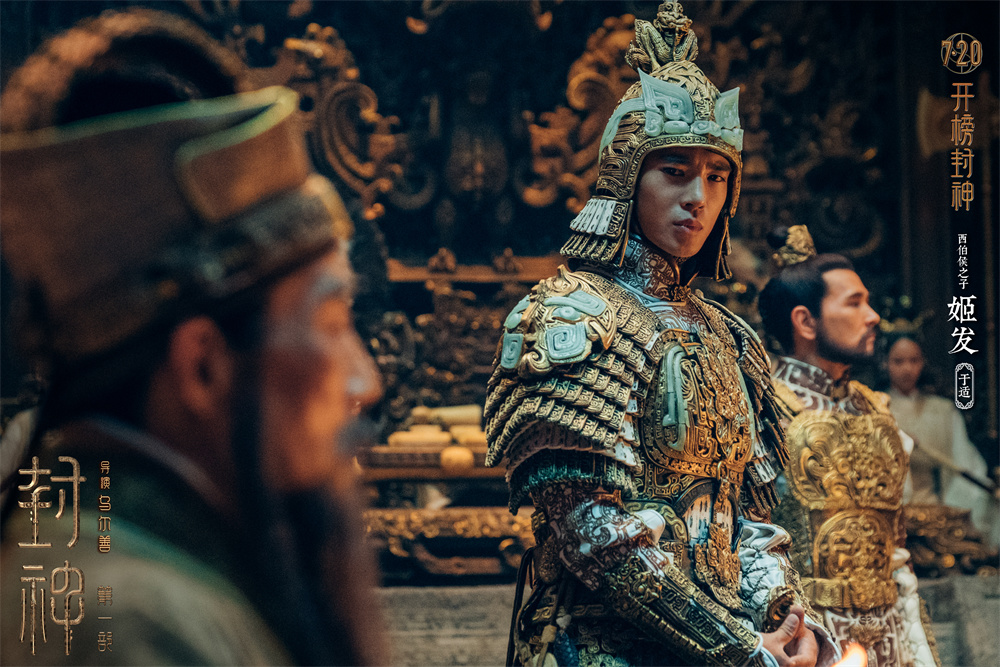
Ji Fa looked at his father
Another father-son relationship is Yin Jiao (played by Chen Muchi) and his father Yin Shou (played by Fei Xiang, the later king of Shang Zhou). In order to avenge her mother Queen Jiang (played by Yuan Quan), she was pushed to the guillotine by her father and rescued by a fairy, but in the end she stood by her father and became the most important opponent of King Wu. This is too contradictory to the relationship between father and son. Why can a father kill his own son? The son loves and hates his father intertwined, why did he choose to become his father's defender in the end? The father-son relationship is also particularly intriguing to me.

Yin Jiao was pushed to the guillotine by his father.
The Paper : The relationship between the two pairs of characters in the movie is connected by Proton Jifa. Ji Chang is his biological father, Yin Shou is his adoptive father, how does Ji Fa choose? In my opinion, this is the best highlight of the original novel.
Wu Ershan : For me, no matter how big an epic is, it must have a foothold. When the script was basically finalized, I said that the stories of these two families should be told well, and the relationship between the two groups of father and son should run through the first movie. Emotional thread. Based on this, let's expand why Yin Shou is such a person. He is a villain who will use any means to achieve absolute control of power. The reason why Yin Shou wanted to kill Yin Jiao was that Ji Chang from "Wu Wang Fa Zhou Ping Hua" made a fortune for him, saying that he "must die at the hands of blood relatives", and Daji (played by Na Ran) can promise that he can live forever , so that he wanted to kill his sons Yin Jiao and Wang Shu Bigan (played by Wang Luoyong) who opposed him. He also used cruel means to destroy Ji Chang's will, and told him that you still have a son, Ji Fa, in my hands. In "Fengshen Yanyi", it is written that Ji Chang Shizi is to pretend to be a fool in front of King Zhou to protect himself. Such an explanation is not cute. In the film, we think that the reason why he is so forbearing is to protect another son, Ji Fa.
Wu Wang Jifa finally defeated King Zhou and established a new era, but in "Fengshen Yanyi", they didn't meet until the battle of Muye, which is unimaginable from the perspective of drama story, the biggest male lead and villain There must be a very strong relationship between the big bosses - here we borrow the description of Boyi Kao from "The Century of Emperors" (authored by Huang Fumi of the Western Jin Dynasty), who drove for King Zhou, and King Zhou wanted to test whether Ji Chang is loyal or not , killed Bo Yi Kao and made meat soup for Ji Chang to eat. We replaced Boyi Kao's identity as a hostage by King Zhou's side with Ji Fa.
The status of "proton" is very common in ancient court politics. In the movie, Ji Fa came to Chaoge when he was a child, and has been hiding by Yin Shou's side. Therefore, he worships the seemingly heroic Yin Shou as his spiritual father, but despises his biological father Xibohou Jichang, thinking that the future The one who plows the fields. Such an arrangement will make the characters' dramatic curves more intense. In addition, since we are going to talk about a duel between good and evil, there will be an explanation of how the protagonist's seeds of kindness are planted. The protagonist of the story, Ji Fa, was still a young and confused person when he first appeared on the stage. If he wants to grow up, he must go through the process of awakening.
The Paper : I think this theme will also touch the current audience.
Wu Ershan : The theme of the first part is Ji Fa's awakening and return. What he once yearned for and admired was a lie, the greatest evil, but beside the father he had neglected, he saw the power of true love and the power of faith, and thus completed his choice. In the film, Ji Chang told Ji Fa, "It doesn't matter whose son you are, who you are is what matters." He also pointed out that if you believed what King Zhou said, you would kill me in the Longde Palace, but You didn't do that, which means you still have a conscience. This directly triggered Ji Fa's awakening.
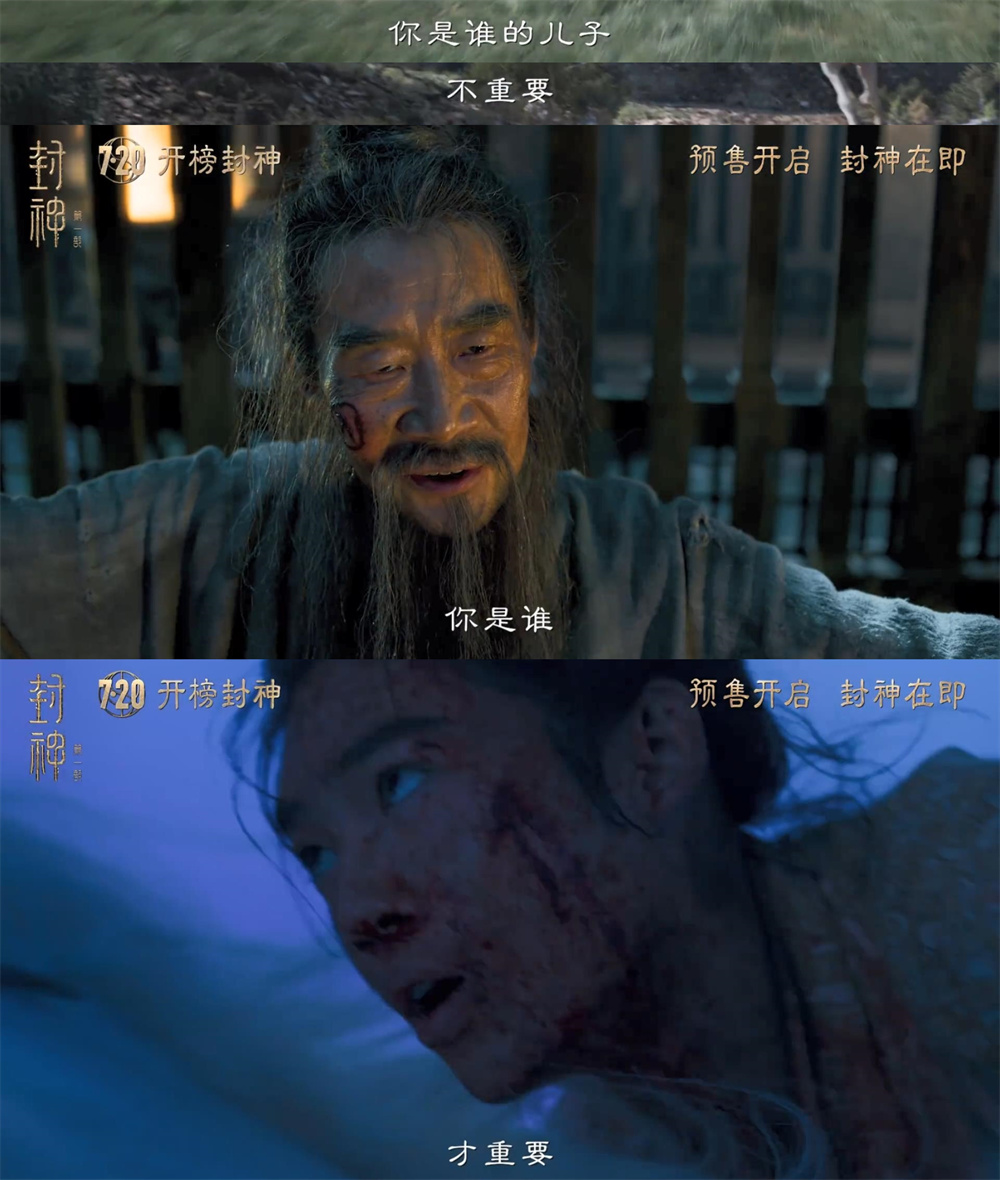
Ji Chang said to his son Ji Fa: "It doesn't matter whose son you are, who you are is what matters."
This kind of story structure finds a new creative space in the blank part of the original novel text. Everyone has to face the relationship with their father. We may have all wanted to be "that" person, lost in misunderstandings and wrong choices, but in the end we will all return to our "hometown" to start again. The adaptation of this story has also changed from a historical text to a form of mythological fables-mythological epics must touch the collective unconscious level of the nation, and the moral judgments and value choices in it will also touch the psychology of the individual. This is something each of us experiences and is bound to resonate with.
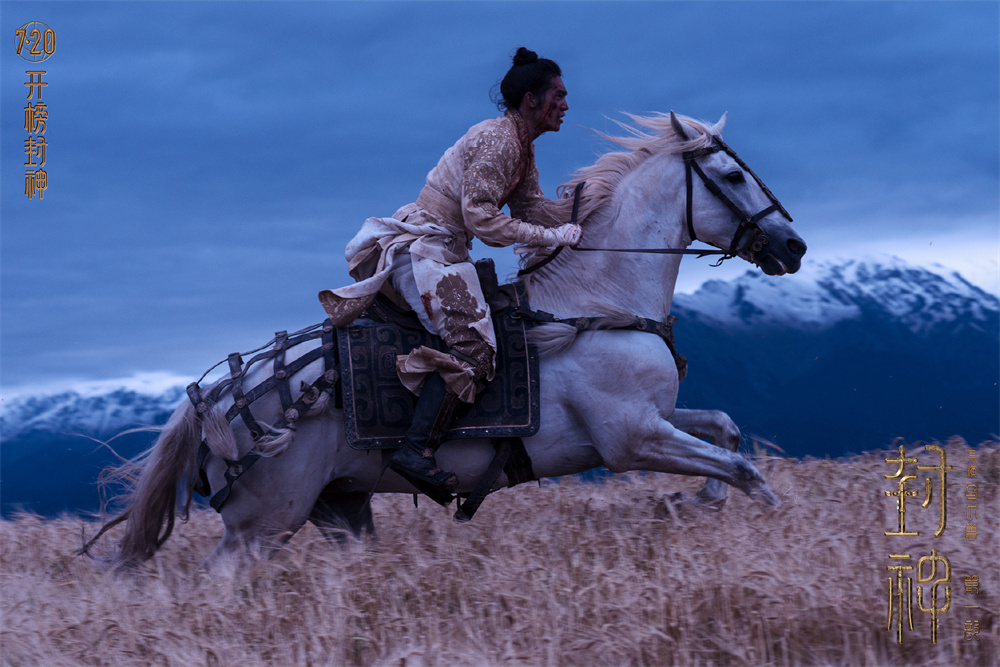
The white horse takes Ji Fa home
"I hope that all the important scenes will be a beautiful stage play"
The Paper : The King Zhou in "Fengshen Part I" is an evil monarch who knows himself and does his own thing. Can you introduce the reason why Fei Xiang was invited to play Yin Shou in the first place?
Wu Ershan : First of all, we should consider the closeness of appearance. King Zhou of the Shang Dynasty described in "Xunzi Feixiang Pian" is "giant and handsome, he is the best in the world; the stronger his muscles are, he is the enemy of a hundred people." It can be seen that the 31st emperor of the Yin and Shang Dynasty is a tall and strong man. The handsome, arrogant and perfect prince-type character is easily reminiscent of Fei Xiang's appearance. Let's look at the description of Yin Shou in "Historical Records", "Wisdom enough to refuse advice, and words enough to cover up wrongs." This means that his talent and knowledge are enough to make those who argue with him and give advice willing to bow down, and he can say bad things with a single mouth. Do good things and cover up your mistakes.
It can be seen from these records that he is far from the image in the public stereotype - there is no description of Yin Shou's appearance in the novel "Fengshen Yanyi", and everyone's impression of him in the past largely comes from the previous TV series . Going back to our movie, Yin Shou is the biggest villain in the whole story. How strong must he be to allow the power of kindness to truly grow? Then go against him, so the setting makes sense. If he's just a dopey nymphomaniac, it won't convince the current audience, he has to be very evil to be challenging. So the King Zhou you saw in "Fengshen Part I" is a PUA master, and he has clear logic and methods for the pursuit of power.
In the understanding of villain politicians, it is also necessary to remove the concept of female beauty as a disaster. The stupid kings in history are by no means mediocre people with low IQ who are easily deceived. They actually did evil because they wanted to do it in their own hearts, but in the end they shirked the responsibility to the women around them. It's unfair to women.
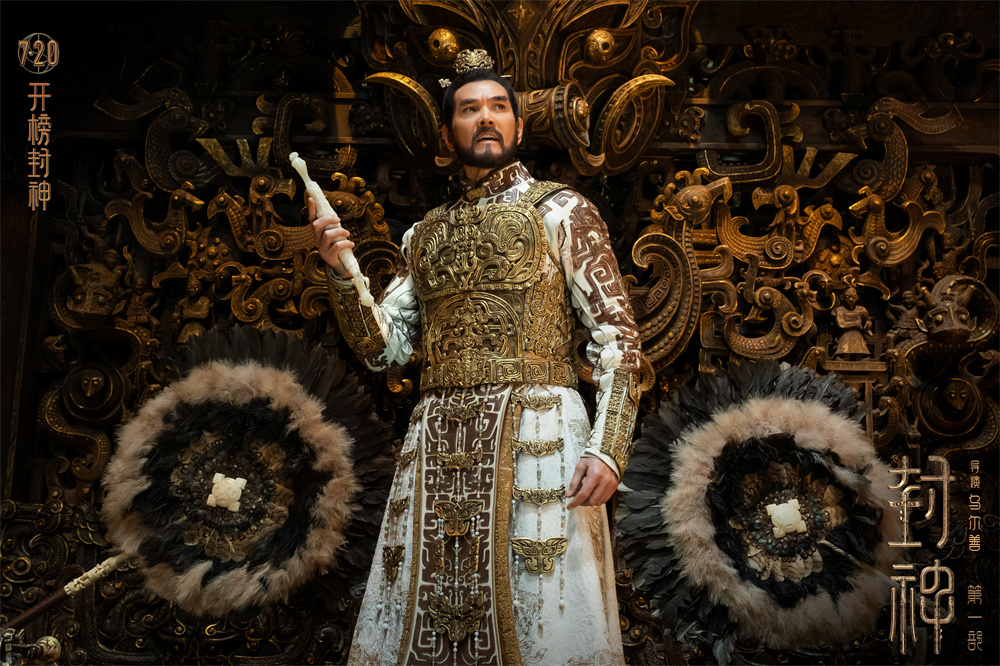
Fei Xiang as Shang Wang Yinshou
The Paper : That's right, Daji in the movie participated in the implementation of Yin Shou's conspiracy to seize power, but she was not the instigator of the palace conspiracy.
Wu Ershan : In the movie, Daji is actually just a little fox who wants to be born. With the blood of King Shang Zhou, he breaks his seal and comes to the world. She has no political ambitions, only her survival philosophy based on her animal instincts, she wants to live, to repay her kindness, and to help King Zhou of Shang realize his wish. This is like the genie in Aladdin's magic lamp. She has no judgment on good and evil, and her evil motives and desires come from the choice of King Zhou of Shang.
Our selection of actors this time is a global audition for 8 teams. I hope that qualified Chinese and Asians all over the world can participate in this audition. For the image of Daji, our requirement for her age is from 16 to 22 years old. Daji was 16 years old when she entered the palace in the original work.
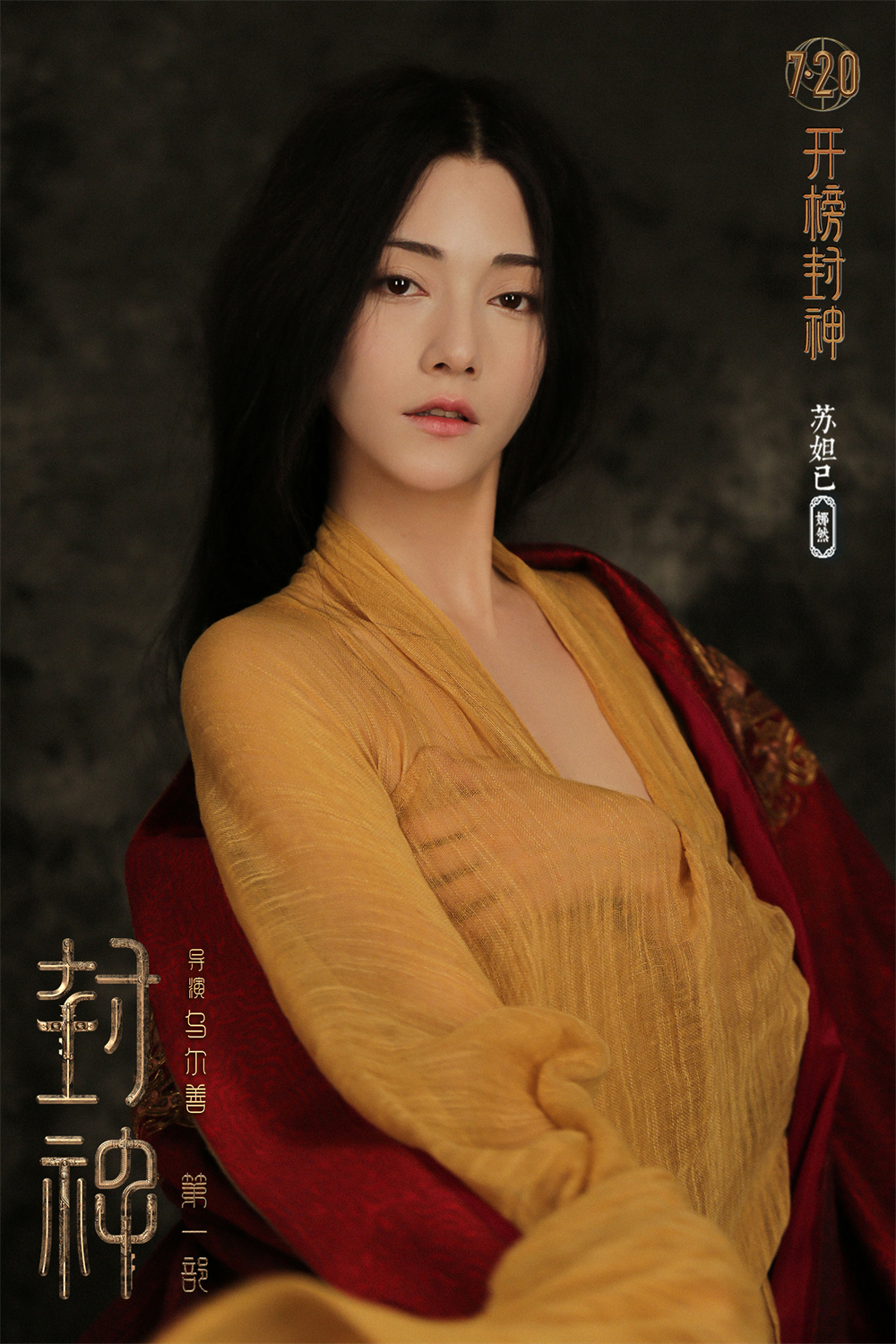
Naran as Daji
The Paper : Except for Daji, the gods and aliens who appeared in the first movie, maybe except for Lei Zhenzi's appearance, which used physical and computer special effects, the others look no different from ordinary people. What do you think of this?
Wu Ershan : The so-called "good fortune and misfortune have no place, only people call, evil thoughts in the heart, evildoers will come." This is a big setting we have for the movie. As the plot unfolds, the audience will see these monsters or gods appearing in the film—whether they are monsters or gods, no one has ever seen them in reality—they all become a kind of metaphor in the movie, and monsters represent human beings. Desires and hidden selfishness, gods are those transcendent and idealized parts of the human spiritual world, with a spirit of sacrifice and compassion. Jiang Ziya also sacrificed himself first when he appeared on the stage. He gave up Taoism and longevity, and was willing to be an ordinary person to undertake his mission.
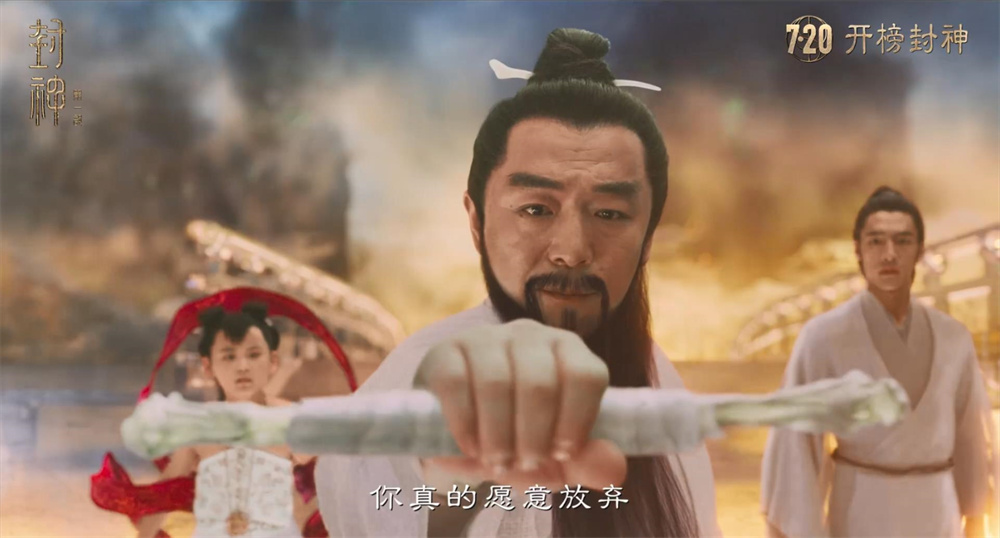
Huang Bo as Jiang Ziya
The Paper : These thoughts seem basic, but I always feel that behind the presentation of the movie, there is also your grasp of the macro level of history.
Wu Ershan : That's right, behind the epic are historical facts and the accumulation of national psychology. The establishment of the Zhou Dynasty brought the Chinese nation to a completely different direction. The core is to establish a complete ethical world. China is also an ethical society today, with family relationships as the most important link to establish social structures and national systems.
The feudalization and founding of the country means that Ji Fa distributed his relatives and family members to various places, and the genes of the entire Ji family became the largest gene pool of the Chinese nation. 82% of the 100 surnames are descendants of the Ji family. The Chinese nation was actually a big family three thousand years ago. Zhou, Wu, King Zheng, Han Wei, Cao Song are all descendants of the Ji family. There are a total of 411 Han surnames. All from the Ji family, it's a huge family. The entire patriarchal clan system, ritual and music system, and moral concepts of later generations are also related to the family, including Zhou Tianzi who claimed to be the Son of Heaven and no longer called the King, and he was also commensurate with the forces of nature as father and son. This ethical relationship has influenced the Chinese nation from three thousand years ago to the present.
The Paper : Among the young actors, Yu Shi, who plays Ji Fa, and Chen Muchi, who plays Yin Jiao, are also eye-catching this time.
Wu Ershan : I am very satisfied with them. In fact, the two of them are very close to the characters in terms of growth experience. The new actors this time are all very suitable. When I was considering using them, I always asked them not to play their own roles, but to have a 80% to 90% fit with the role in terms of real experience. , how to present it, I can teach you. From the perspective of acting skills, it is impossible for them to compare with Li Xuejian and Huang Bo in a short period of time. Their biggest advantage is that they have to "play for real" this time. In the film, all the martial arts and equestrian moves of Yin Jiao and Ji Fa have no substitutes , all done by yourself. Firstly, the actors in the martial arts and equestrian groups basically cannot reach their height of 1.85 meters. Secondly, only when you have mastered these abilities can you play the role with confidence and ease. Including Naran's dance and playing the guqin in "Fengshen Part II", she also did it herself.

Shang Wang Yinshou, proton Jifa, son Yinjiao
After these young actors entered the Fengshen performing arts training camp, they received six months of professional training on how to become ancient warriors, learning acting, martial arts, equestrianism, Chinese literature history, and etiquette in the Yin and Shang Dynasties. As for how to get close to the emotional experience of the characters, we adopted the method of life telling, let them tell their emotional experiences and the relationship with their parents, and then determine which role they are suitable to play, and replace their own emotional experience.
In order to study professional working methods, I first went to learn acting from Teacher Liu Tianchi for three months, and discussed with her what kind of working methods are most useful for newcomers, not talking about empty-headed theories, how to dig out their inner quality, it is most realistic to find a way to clearly guide their performance. We help them design all the acting classes and other classes, including their diet structure, to form the low body fat body shape of fighters.

Ji Fa and Yin Jiao galloped on their horses
The Paper : Many of the indoor scenes in the movie took place in the halls and temples. I know that Fei Xiang and Wang Luoyong have acted on Broadway, and Yang Lixin and Gao Dongping are well-known actors in Beijing People's Art. In terms of the performance of the indoor scenes this time, I feel that you have obvious references to the performance forms of operas and dramas.
Wu Ershan : The form of this movie is a mythic epic, a drama, with a lot of court and ancient historical backgrounds, so we decided very early on that the overall performance style this time should be biased towards stage dramas. It is to use the performance method of a drama, so that the overall quality and performance method of the actors tend to be integrated, and everyone performs in the same context. There are so many characters in the film, everyone has to do very professional drama training if they want to perform in a certain system.
Young actors such as Yu Shi and Chen Muchi were amateurs before joining the crew, and had no professional drama performance training. The courses we arranged for them were all stage performance training, and the performance clips for practice were also the ancient Greek tragedy "Andigo". Nirvana, Oedipus the King, and Shakespeare's Hamlet. In this way, the influence of contemporary life fades away from their actions, presenting a classical sense of distance. In the selection of middle-aged and elderly actors, we also try our best to choose well-known actors with stage performance experience. For example, Fei Xiang originally studied drama. Huang Bo, Yuan Quan, and Xia Yu all have rich stage performance experience. Drama Queen".
Every scene, especially those important scenes, I hope to be a beautiful stage play with a complete plot and delicate performance. From the final presentation of the movie, some beginnings and tails will be deleted in consideration of the rhythm, but the whole performance was performed according to the plot script during shooting. After we finished filming the whole scene, we took medium shots and close shots one by one. I especially hope that the performance of the actors on the set this time can achieve real-time interaction on the spot. In other words, I may choose when editing, but your performance must be completed in one go from beginning to end.
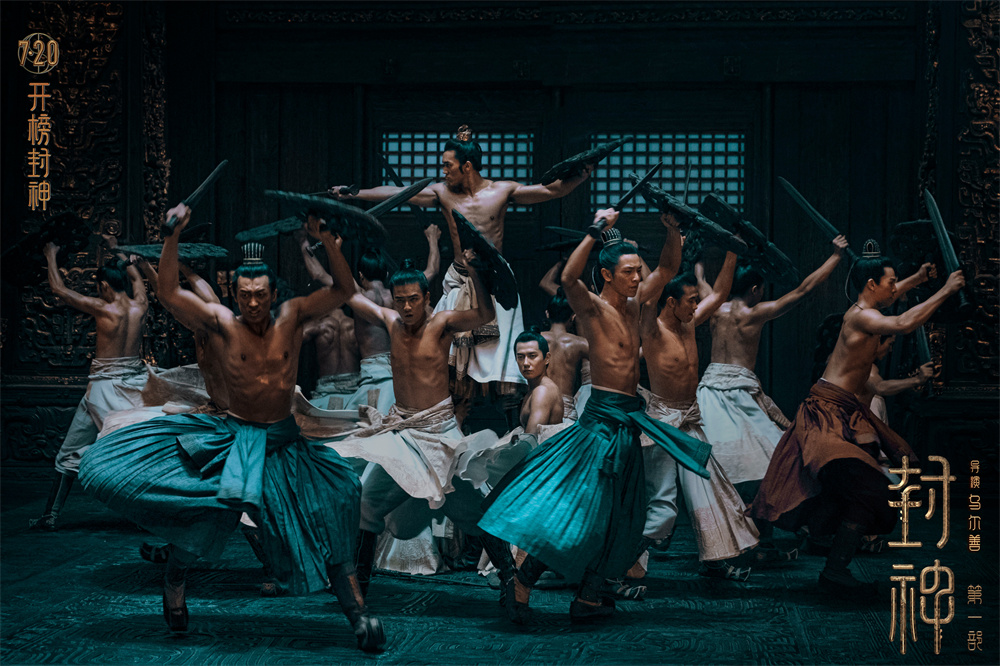
Yin Shang proton war dance
In fact, the audience will also find that "Fengshen Part I" has a lot of group dramas, and there are very few scenes between one or two characters, but three or five or more people end up. Especially in the scene where the four protons face their biological father, the four princes from east, west, north, south, and north, and are threatened by Yin Shou to confront their father in the hall of Longde. There are a total of 9 characters on the scene, and each role corresponds to a different relationship between the characters. and personality settings. Such a scene must use the rehearsal method and performance style of a stage play, and when filming, it will also respect the performance and positioning of the actors for scheduling. Unlike the visual effects part, where the animation preview is given priority, this time the filming in the literary play is based on giving priority to the performance of the actors.
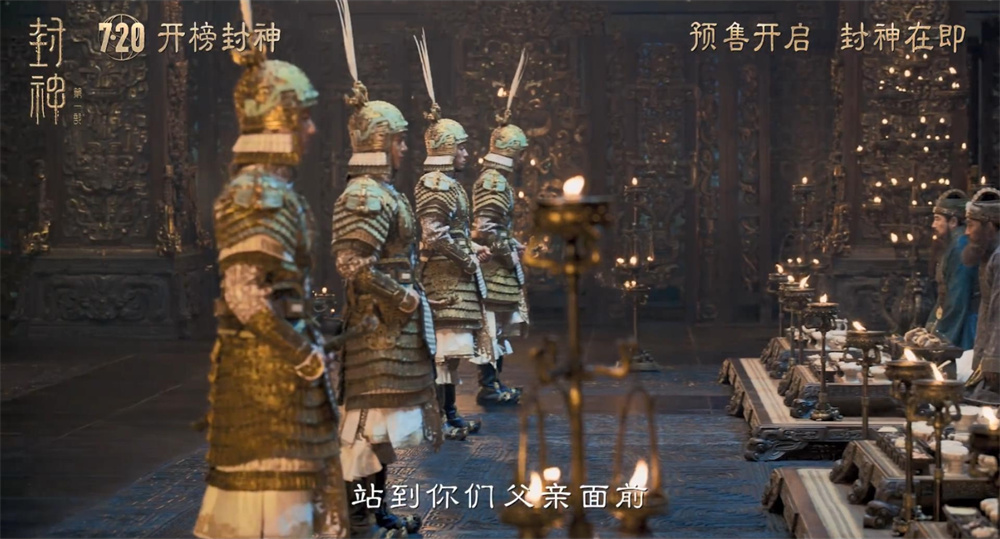
The proton group faced his biological father in the temple.
"I especially like the temperament of ancient China, that kind of staunch and bloody"
The Paper : As an old saying goes, "The major events of the country lie in sacrifice and military affairs." In addition to showing war, sacrifice is also an important manifestation of ancient civilization. I noticed that the title of the movie "Fengshen" comes from oracle bone inscriptions, and the way of divination is also shown in the film.
Wu Ershan : Everyone knows the word divination, but in fact "divination" and "divination" are two different things. The ritual of burning tortoise shells in Bigan is called "divination", which is a typical feature of the witch culture in the Yin and Shang Dynasties. All things must be asked of the gods, and the cracks on the tortoise shells can be interpreted by asking divination. In the film, the scene of "Heaven abandoned me as a great merchant" at the enthronement ceremony of Shang Wang Yinshou, we borrowed from the records in "Shangshu". conceited character. Such a scene has not been filmed before, but it has considerable cultural significance.
King Wen (Ji Chang) plays gossip, and King Wen is the author of "Book of Changes", that form is called "zhan". Put the numbers through the stems of yarrow to get the hexagrams, and then use the "Book of Changes" to interpret the hexagrams and predict the future. Zhou Wenwang's "divination" and Yin Shang's "divination" are two different forms of divination. It is precisely because Zhou people have the ability of "divination" that they broke the arbitrariness of Shang Zhou's communication with gods, so Only then did King Zhou arrest Ji Chang and imprison him in Yili, and then King Wen performed "Book of Changes" in the north of Tangyin County, Henan.
The Paper : In addition to the presentation of the movie, "Feng Shen No. 1" has released more than 130 solar term posters in the past five years, and all of them are equipped with relevant copywriting. I would like to know, besides the finalized poster of Mangzhong on June 6, which other posters do you still have an impression of at the moment?
Wu Ershan : As a calendar, the twenty-four solar terms embody the Chinese people's view of the universe, and are closely related to the arrangement of production and life of the farming nation. The "Fengshen Trilogy" itself also reflects the Chinese people's outlook on the universe. At the same time, this huge work also requires the hard work of each of our participants. The reason for this is that we have produced a large number of exquisite costumes, props and scene details according to historical records. When it comes to the promotion of the film, I think everyone may not have time to appreciate and appreciate it. The details of these costumes and props are all art-level, and they were released in the form of solar term charts in the early stage, which not only can attract everyone's attention in advance, but also the solar term culture itself has continuity. Objectively speaking, it is no problem for us to distribute these "inventories" for another three years, because the workload this time is too great, and it needs to be seen by the world.
After the poster in Mangzhong, we started to distribute stills, and after that, we will distribute stills with large banners in all solar terms. We also have a lot of stills, and we have to find a way to post them. We only have 24 solar terms a year plus a few traditional festivals. I hope everyone can see our pursuit of details throughout the production process.
The Paper : Let’s talk about the features of the film’s soundtrack. Personally, I feel that it is almost completely accompanied by the plot.
Wu Ershan : That’s right, this time the music must be “full” first. In the first part, 90% of the time may be covered by music. This time, music is used to promote the narrative, which is a very unique creation. When planning at that time, we decided to divide the music into two parts. One is the music in the narrative. When there are a lot of Yin Shang ceremonies, court etiquette, and war scenes in the film, this part of the music appears. The music outside the narrative is the soundtrack, and it is also the music that shows the authorship of the director. I hope to use Wagnerian melodrama to tell stories with music like "The Ring of the Nibelungen". It has heroic themes and emotional themes. , and runs through the entire movie, producing constant variations. The last two ending songs also come from the theme, this time the soundtrack is a kind of theme writing.
This time we also want to combine Chinese national musical instruments with Western symphony, such as how to integrate traditional musical instruments such as flutes, zithers, and drums into the performance of symphony orchestras. After discussing with the music director Meng Ke Zhuolan, I decided that the music in the narrative should be written by her. She studied modern music and also has some research on ancient Chinese music. The creation of non-narrative music is to look at the world, and we must find a composer with a very good foundation in classical music. Finally, we found John Williams' assistant Gordy Harbaugh, who is passionate about creating magnificent classical epic style music. Very experienced, responsible for the game music creation of "Star Wars". My request to him was that Chinese musical instruments must be added to the symphony. For this reason, he had to come to China for investigation. He went to Henan Provincial Museum and Hubei Chime Bell Museum.
The Paper : When the logo of Changshengtian Films appeared in the opening title, the background music was Mongolian Khoomai. Can you think that as a Mongolian, you will have the advantage of jumping out of the traditional thinking of the Han people to examine Chinese culture in controlling themes of history and mythology?
Wu Ershan : I was born in Hohhot, Inner Mongolia, and came to Beijing when I was 4 years old. I have lived here for 47 years, so I can be regarded as an old Beijing. I grew up in an urban environment, and the cultural edification and education that everyone received is actually similar. There is no deliberate consideration in choosing this theme, but I personally like ancient history. I started reading "Historical Records" and "Warring States Policy" when I was in elementary school. . I especially like the temperament of ancient China, that kind of staunch and bloody, that kind of brittleness that may be easily broken but hits people's hearts directly. On the contrary, modern Chinese people have to make seven or eight detours, which makes people feel very vague and flustered.
When we look at the characters recorded in "Historical Records", their style of work is often very distinctive. It is the ancient style of Chinese civilization, but it is the youthful age of our civilization. In my opinion, the entire Shang and Zhou dynasties and the Spring and Autumn and Warring States periods are the youthful age of the Chinese nation. From the ghost and god culture of Yin and Shang to the human society of Zhou Dynasty, the concept of civilization is changing. A set designed for the later generations of the Chinese nation has continued to the current concept of ethics and patriarchal clan. This actually determines why we become China. important historical events.
The Paper : Finally, please introduce the filming and release plans for the next two sequels.
Wu Ershan : The filming of "The Trilogy of Conferred Gods" has now been completed, and the material editing of the last two parts has been completed. Only the visual effects are not finished. cost money. But no matter how grand and shocking the war scene is, it must be based on the unfolding of the first story. First of all, everyone must accept the theme of the whole story and the setting of the relationship between the characters, so that they are willing to follow the development of the fate of these characters. When Ji Fa returns to his hometown, even greater disasters and crises will follow...
The original work of "Fengshen Yanyi" is actually a very even three-stage arrangement: the first paragraph from the first chapter to the thirty-third chapter talks about King Zhou's immorality, persecution of Zhongliang, and Huang Feihu's return to Zhou; the second paragraph thirty-fourth chapter In the sixty-sixth chapter, it talks about how Jiang Ziya and Ji Fa dealt with the overwhelming army on the thirty-sixth road against Xiqi; at the beginning of the sixty-seventh chapter, Jiang Ziya came to the stage to worship the commander, and King Wu defeated Zhou. Basically, these three sections are used to divide the chapters. This arrangement is roughly the structural framework of the three films. In the third part of the film, gods such as Yuanshi Tianzun and Tongtian Jiaozhu will enter the whole story, step by step. Come, let's start from the world.


